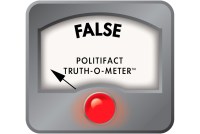Latest KFF Health News Stories
Harris’ Emphasis on Maternal Health Care Is Paying Dividends With Black Women Voters
Polls are showing renewed support from Black women voters for the Democratic ticket. Vice President Kamala Harris has backed key health priorities for Black women.
Setting the Record Straight on the FDA’s Authority Over Drug Ads
KFF Health News gives readers a chance to comment on a recent batch of stories.
How Minnesota Figures Into the Presidential Politics of Insulin Prices
Minnesota led the way on insulin affordability, culminating in 2020 when Gov. Tim Walz signed a law going further to cut costs than other state laws. Now, former President Donald Trump and Vice President Kamala Harris are vying for support from people with diabetes.
Silence in Sikeston: Trauma Lives in the Body
Denzel Taylor, a young Black father, moved from Chicago to Sikeston, Missouri, for a fresh start in life. There, he proposed to his girlfriend, started a family, and then, in April 2020, was fatally shot by police officers. Taylor had two young daughters and another on the way when he was killed. Pediatrician Rhea Boyd talks about how children process such loss.
California Voters Consider Tough Love for Repeat Drug Offenders
A California ballot measure would roll back some decade-old criminal justice reforms that have become fodder for Donald Trump’s presidential campaign. Stiffer penalties for shoplifting have gotten much of the attention, but the measure also allows controversial treatment requirements for repeat drug offenders.
The Medicare Advantage Influence Machine
New court filings and lobbying reports reveal an industry drive to tamp down critics — and retain billions of dollars in overcharges.
A Few Rural Towns Are Bucking the Trend and Building New Hospitals
A remote Wyoming community hoped for years to have more access to health care. Now, after receiving federal funding, it is bucking dismal closure trends throughout the rural U.S. and building its own hospital. And it’s not the only one.
Democratic Hopefuls Fault GOP Incumbents for Anti-Abortion Records in Congress
Democratic congressional hopefuls in California are highlighting the anti-abortion records of vulnerable Republican incumbents, many of whom have moderated their stances ahead of the election. With control of the U.S. House at stake, Democrats hope to convince voters that their candidates will do more to protect women’s health.
What the Health? From KFF Health News: Congress Punts to a Looming Lame-Duck Session
Congress left Washington for the campaign trail this week, but not before approving a spending bill that expires shortly before Christmas. Lawmakers will be busy after the election working on not just the legislation needed to keep the government running, but also several health programs set to expire. Meanwhile, Republicans continue to downplay abortion as Democrats press it as a campaign issue. Alice Miranda Ollstein of Politico, Lauren Weber of The Washington Post, and Joanne Kenen of Johns Hopkins University and Politico join KFF Health News chief Washington correspondent Julie Rovner to discuss these stories and more.
Nursing Aides Plagued by PTSD After ‘Nightmare’ Covid Conditions, With Little Help
A KFF Health News investigation reveals that employers and the government have offered nursing aides little assistance for PTSD and other ongoing maladies triggered by hazardous work during the pandemic.
In Montana Senate Race, Democrat Jon Tester Misleads on Republican Tim Sheehy’s Abortion Stance
Republican Senate candidate Tim Sheehy has said he supports letting states decide the abortion parameters within their borders and supports including exceptions for rape, incest, and the life of the pregnant woman in legislation to restrict abortion.
In Chronic Pain, This Teenager ‘Could Barely Do Anything.’ Insurer Wouldn’t Cover Surgery.
An Alabama teen was told he needed surgery for debilitating hip pain. But his family’s insurer denied coverage for the procedure, which lacked a medical billing code. Expected to pay more than $7,000, his father charged it to credit cards.
Deadly High Blood Pressure During Pregnancy Is on the Rise
More pregnant women are being diagnosed with dangerously high blood pressure, which risks the life of the parent and child. Montana is one of the states improving screening and treatment as health facilities work to match care with best practices.
Watch: What You Reveal, You Heal — Meeting the Makers of ‘Silence in Sikeston’
KFF Health News Midwest correspondent Cara Anthony sat down with WORLD executive producer Chris Hastings to discuss the origins of the “Silence in Sikeston” project, which explores the impact of a 1942 lynching and a 2020 police killing in the same rural Missouri community.
California Governor Signs Law Banning Medical Debt From Credit Reports
New California legislation will bar unpaid medical bills from showing up on consumer credit reports starting in January. However, the banking industry muscled in eleventh-hour amendments that weakened the protections for patients, the bill’s lead sponsor says.
Vance Rewrites History About Trump and Obamacare
During the Trump administration, enrollment in Affordable Care Act health plans fell by more than 2 million people and the number of uninsured Americans rose.
How North Carolina Made Its Hospitals Do Something About Medical Debt
State officials threatened to withhold public money from hospitals, pioneering a strategy that could become a national model.
She Was Accused of Murder After Losing Her Pregnancy. SC Woman Now Tells Her Story.
Amari Marsh, now 23, was a student at South Carolina State University when she lost her pregnancy in 2023. She was charged with murder and faced at least 20 years in prison. A grand jury cleared her in August. Now she’s sharing her story.
Florida’s New Covid Booster Guidance Is Straight-Up Misinformation
State Surgeon General Joseph Ladapo spread more anti-vaccine misinformation by telling Floridians to avoid mRNA vaccines. Vaccine experts and historians can’t remember another state health leader urging residents to avoid an FDA-approved vaccine.
Across North Carolina, Medical Debt Exacts a Heavy Toll
The state has among the highest levels of medical debt in the country, data shows.


























